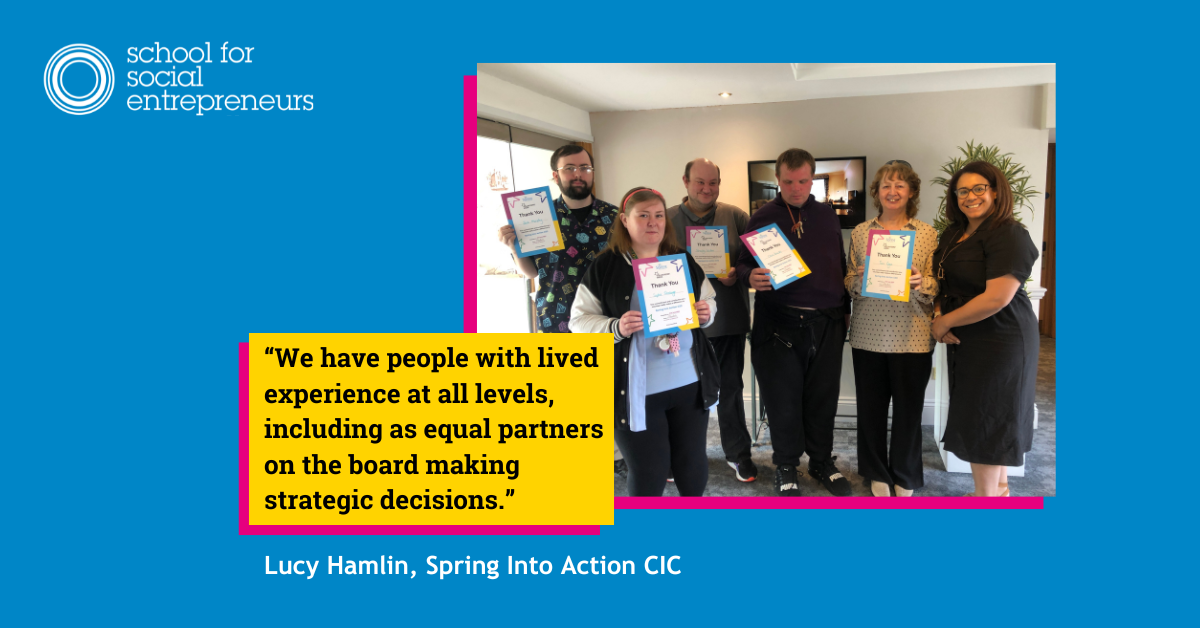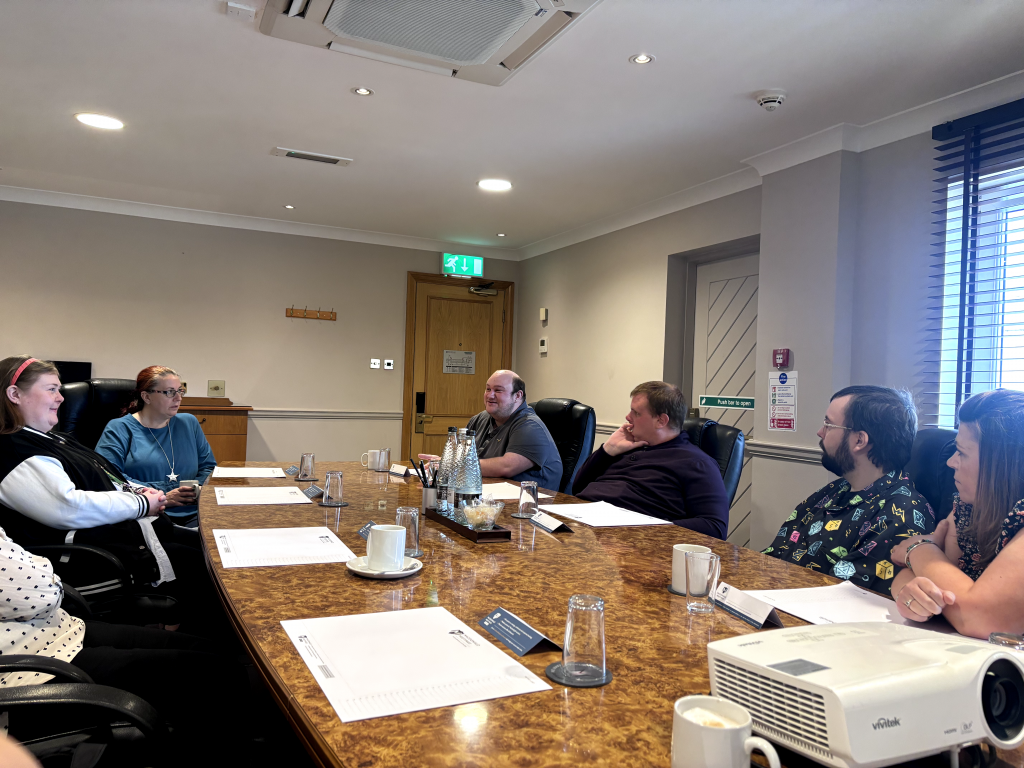Co-production – developing projects and including the people you want to serve
9 Jul 2024
 Written by Lucy Hamlin, Managing Director of Spring into Action CIC.
Written by Lucy Hamlin, Managing Director of Spring into Action CIC.
Co-production – what’s that!?
A term used a lot in the health and social care space but should really be adopted within all areas when you have an idea for a new organisation, product, or service. Most organisations in the VCFSE sector are set up with the idea to improve the lives of the community that they serve and make a change for the better, but how do you know that it’s also wanted by others in your community? And how can you ensure that the projects and services will meet their needs? Co-production goes beyond market research and consultation, it’s about the community that you serve becoming equal partners and co-creators of the work.
| If you’re looking for support for your community business, check out our new programme Trading for Good Community Business. |
Involving people – not a tick box exercise!
It’s always good practice to undertake market research whatever the business or organisation does, and if applying for funding or investment, you will always need to demonstrate the need for your service. In the VCFSE sector we might see this as focus groups, consultation or undertaking surveys.
However, co-production goes further than that. It ensures that you get a deeper understanding of the issues that your community faces and how these might be overcome by enabling people to have a say in how your solution will be delivered.
Time & Resources
Co-production takes time and resources, but it is worth it to get to better understand the people or community you want to serve. Within my organisation, which works with people with learning disabilities, we have people with lived experience at all levels, including as equal partners on the board making strategic decisions. Some things we do to help with this are:
- Making information accessible
- Pre-meetings to go through meeting papers and to prepare any questions
- Sub-groups for the more mundane items, then providing an overview at the full board without overwhelming people
- Each director has an area that they focus and lead on
One director self-titled himself as our Happiness Director – when asked what this meant for the organisation it became clear that for him, it was about people being happy.

We decided together that this meant the overall well being for everyone and that it was important to him, for everyone to be happy when encountering our organisation. An example of how this has gone from the board through to delivery, is that it feeds into staff and volunteer supervisions where we specifically ask about wellbeing and provide opportunities for people to talk about things that might affect this. Staff have commented about their wellbeing targets, which often have nothing to do with their day-to-day work.
Planning of services
Having open conversations with people to find out their situations, means that people feel empowered and have a feeling of being able to influence the organisation. In return, it’s likely the engagement will increase to your organisation. With over 400 people accessing our services, it can be difficult to ensure people have their voices heard to influence service planning.
We overcome this by having a group of ambassadors who have lived experience, who come together to listen, be heard and input into our work. This helps us because:
- They are a voice for their peers
- They bring a unique insight into the real lives of people
- They understand the barriers and how we can help
- They input about how things are delivered
- They co-deliver on our projects and services
- They attend important meetings as equals
- They raise issues that we have not even thought about, but that are important to them
- They hold us to account of what we have agreed

Involving Volunteers
Volunteers are a great resource to utilise in co-production. Their input can be vital to running services and regular opportunities to feedback formally and informally is key. Some ideas to involve volunteers in co-production:
- Regular volunteer drop-ins (can be in person or online)
- Volunteer supervisions
- Session reports after each event
- Volunteer get-togethers
Our volunteers are unique, they are both people with lived experience and those without, working alongside each other. Each session we deliver is different and the volunteers are involved in the planning and ongoing development of them. They are in touch with the people using our services and really get to know them, which means they tell us what is working and what is not.
By having a formal way to give feedback, it enables us to hear about what is important to the people coming to our sessions and to have meaningful discussions with volunteers working on our services about changes they want to make and that they know will work because they are “on the ground”.
The impact is that the sessions they run have become their own, they know what works to meet the needs of those attending, which in turn makes people trust our organisation and therefore return.
Trading for Good: funded programmes for people who want to improve our world
Gain the knowledge, skills, and confidence to develop and grow projects that tackle social and environmental challenges through strong trading income streams.
Trading for Good provides funding, education and support for social entrepreneurs and community businesses across England. It consists of three programmes aimed at different types of projects at differing stages of their journey.
Each programme has the following specialised support:
- Learning and development programme.
- Match Trading Grant™.
- Ready-made network of people like you.
- Expert insights.
- Peer-to-peer learning.
- Join our community of 3k+ SSE fellows.
